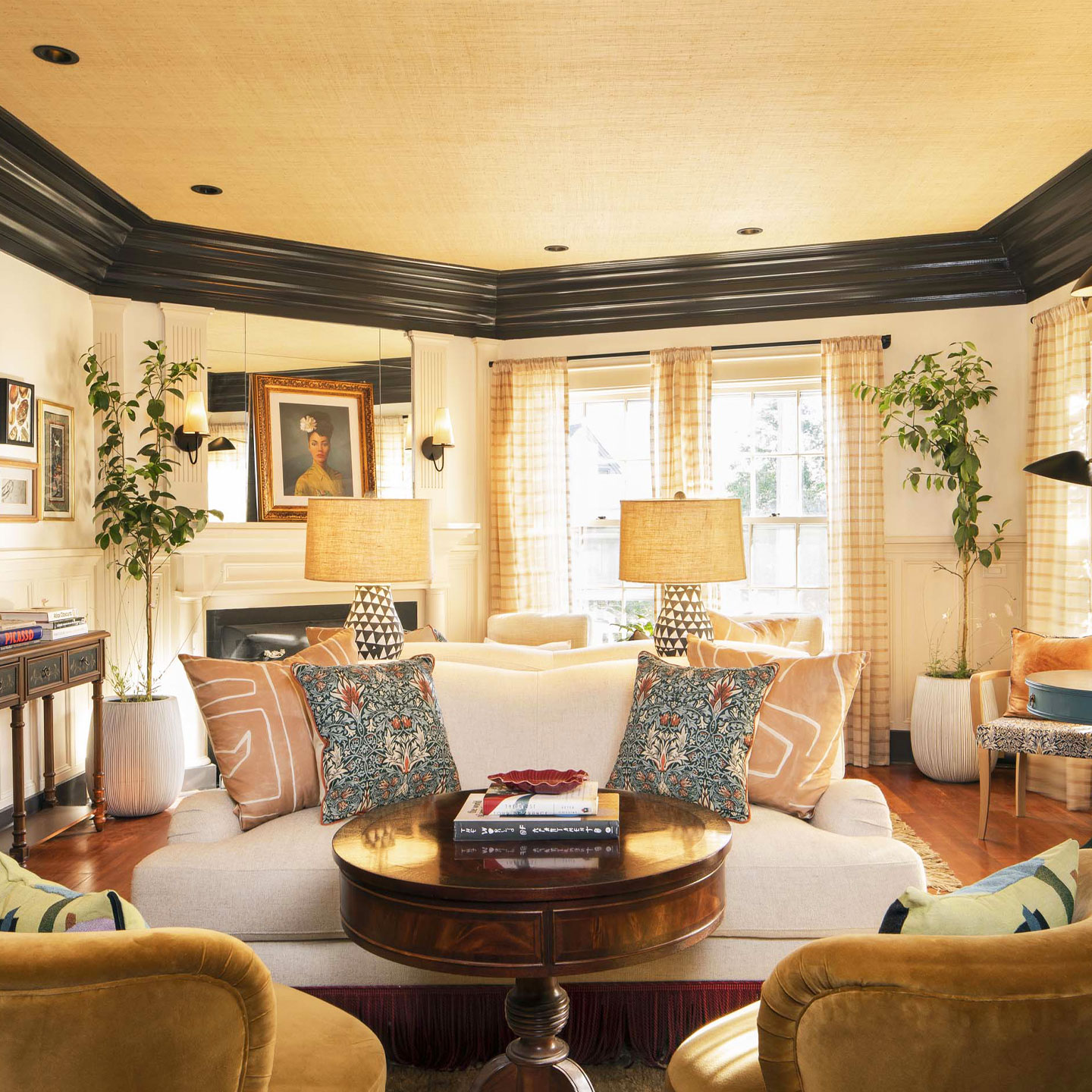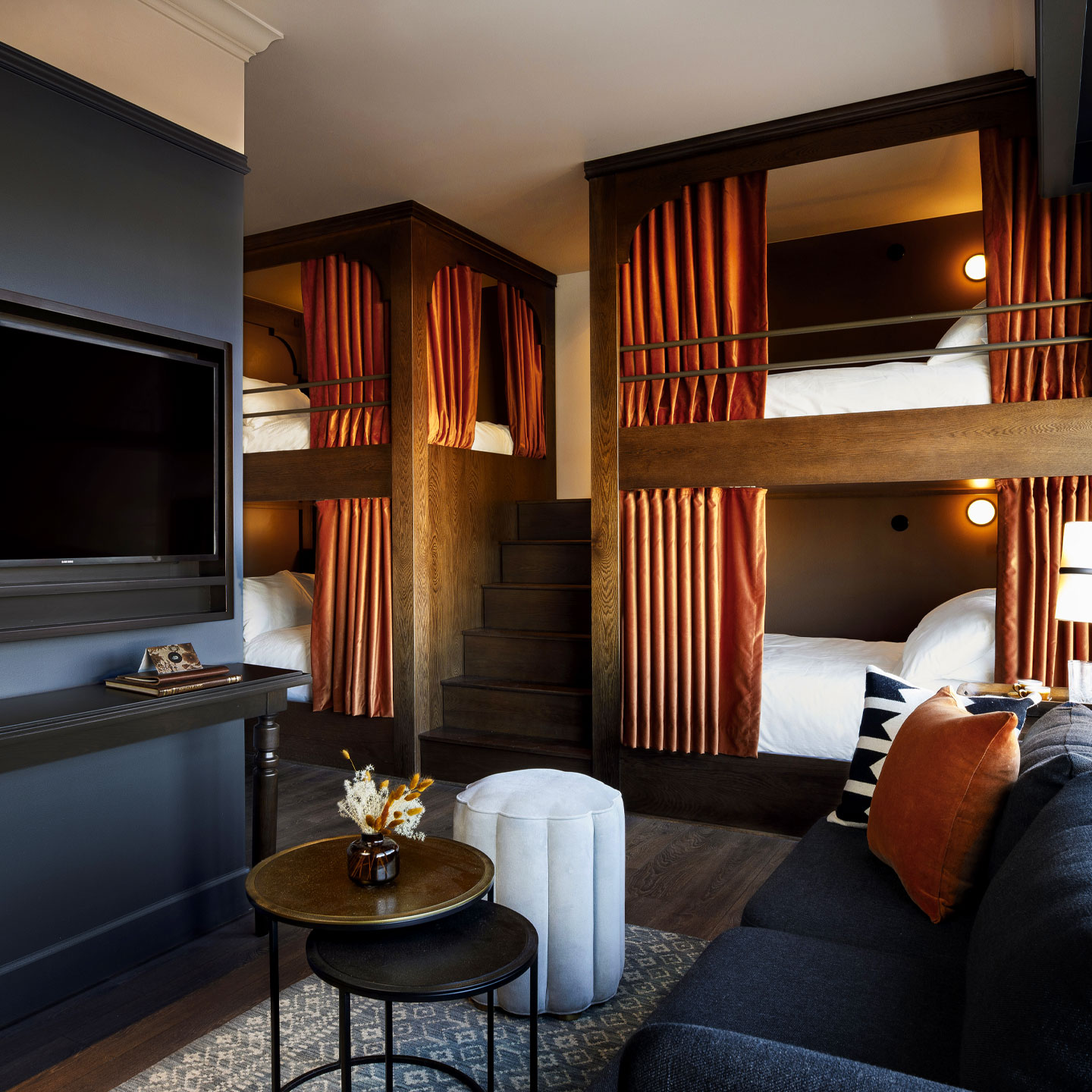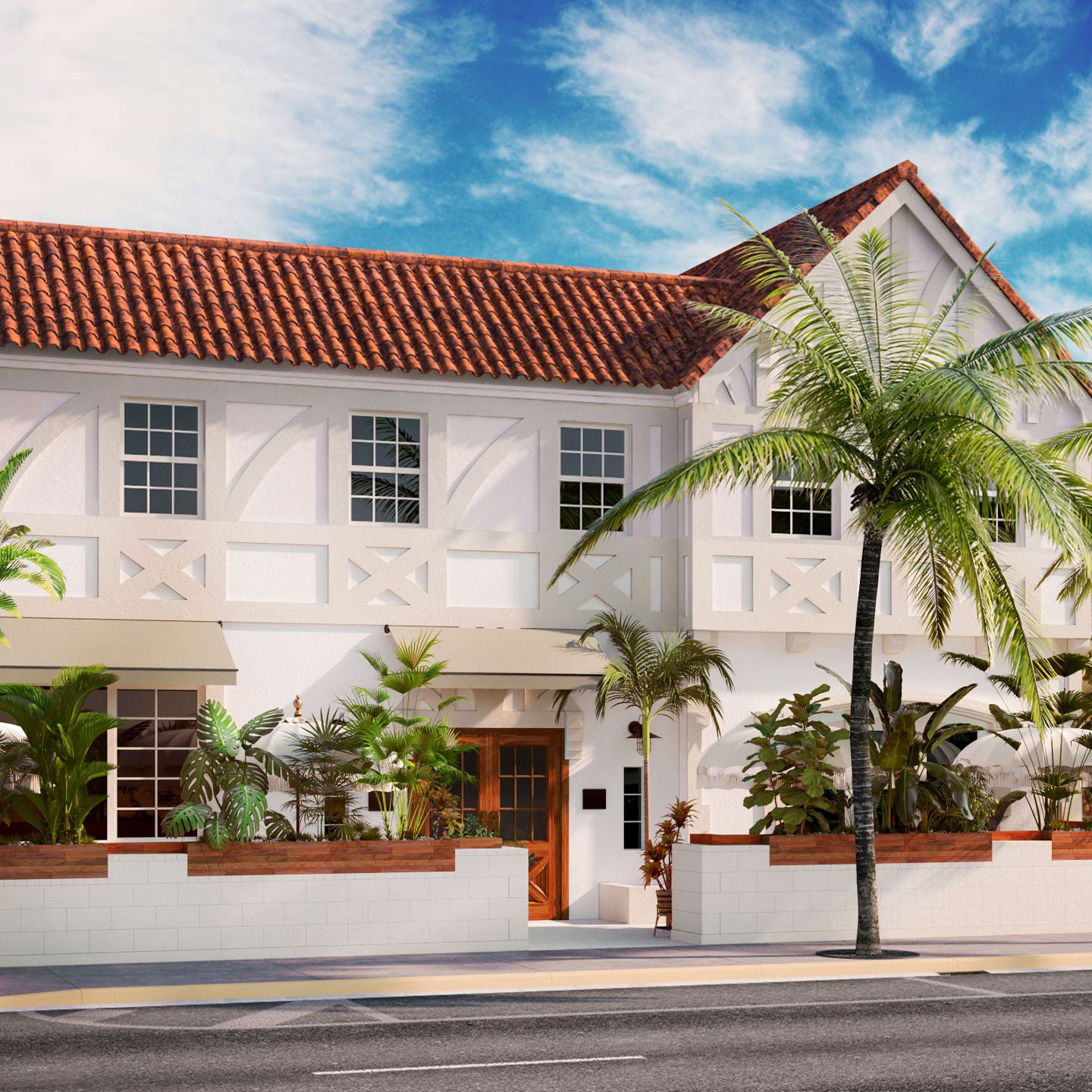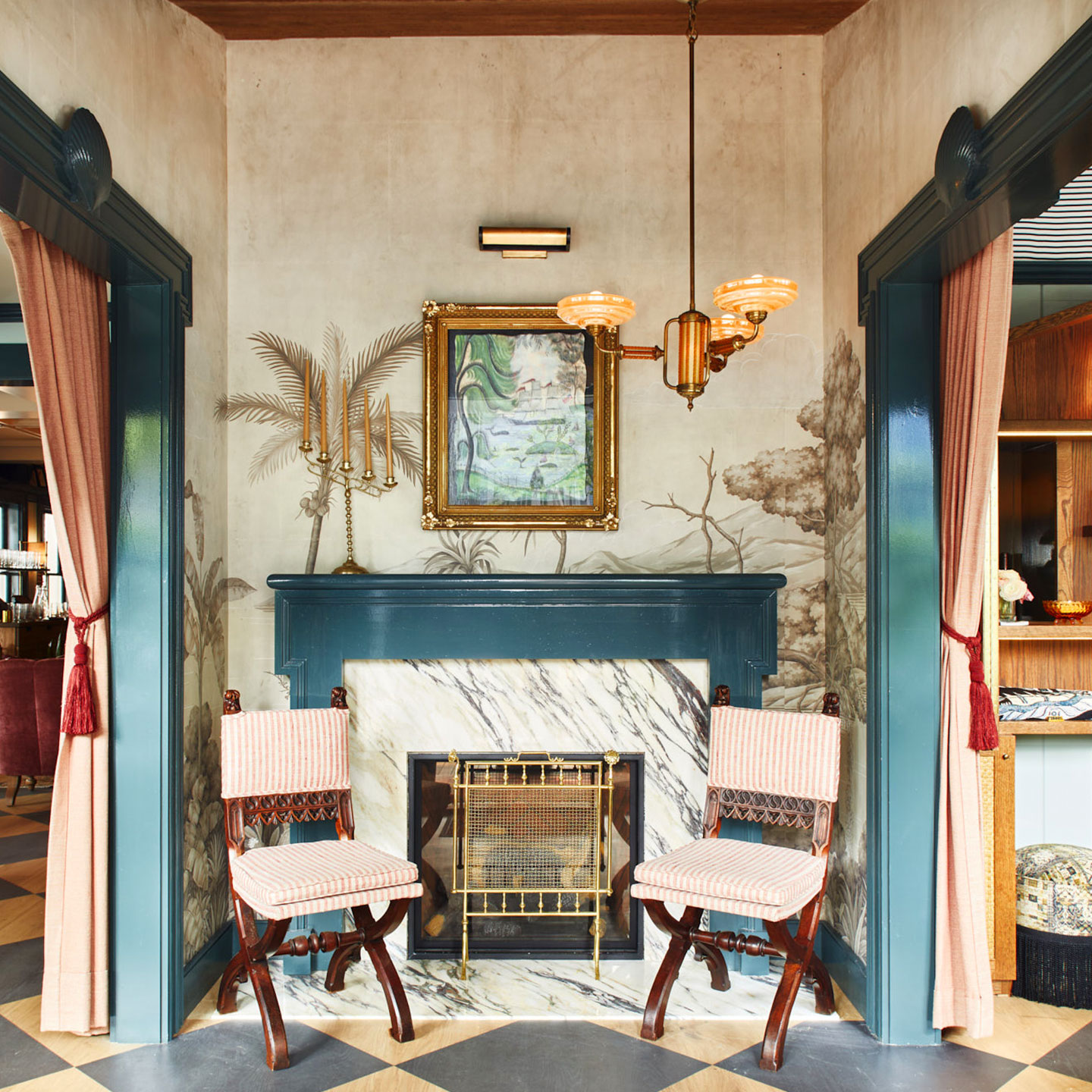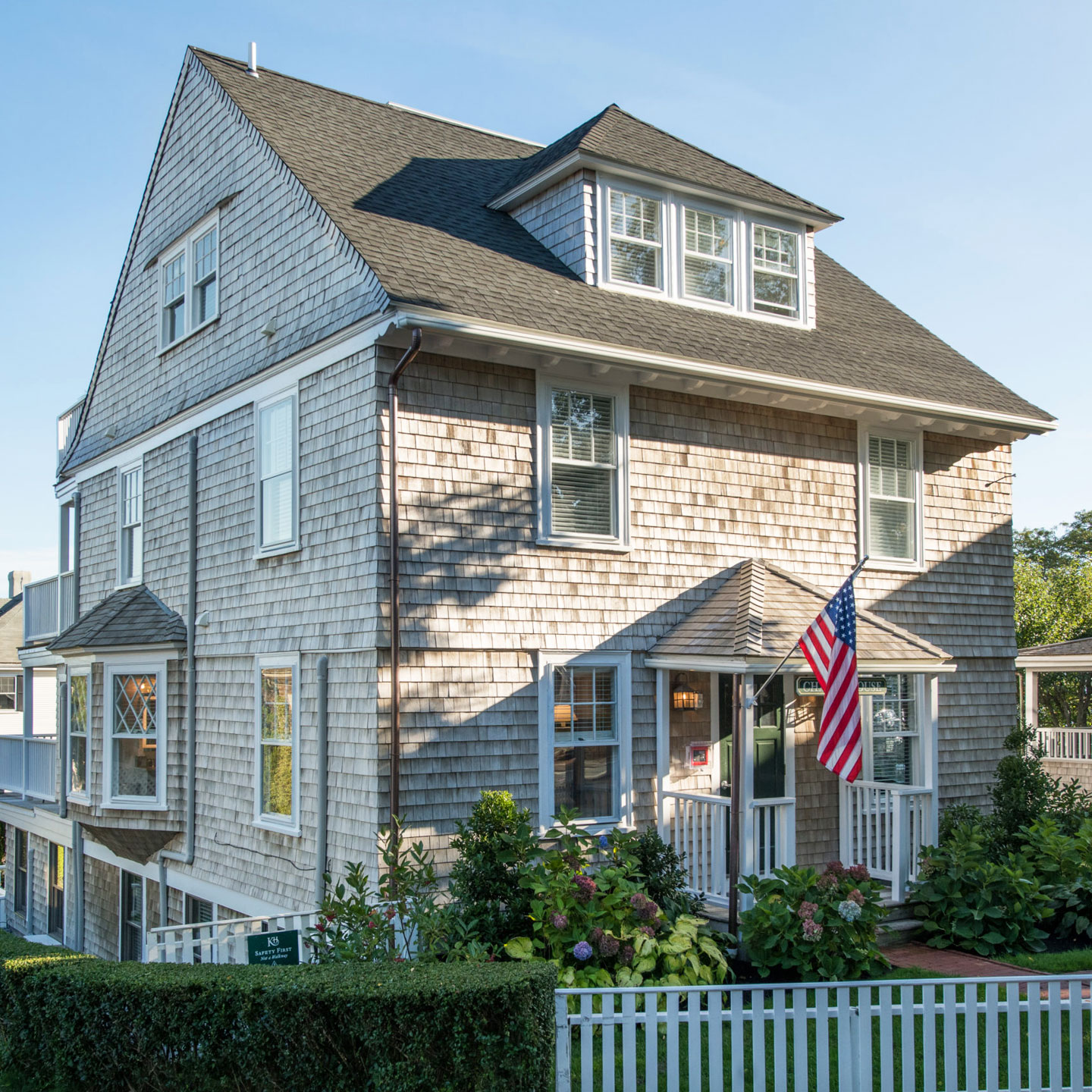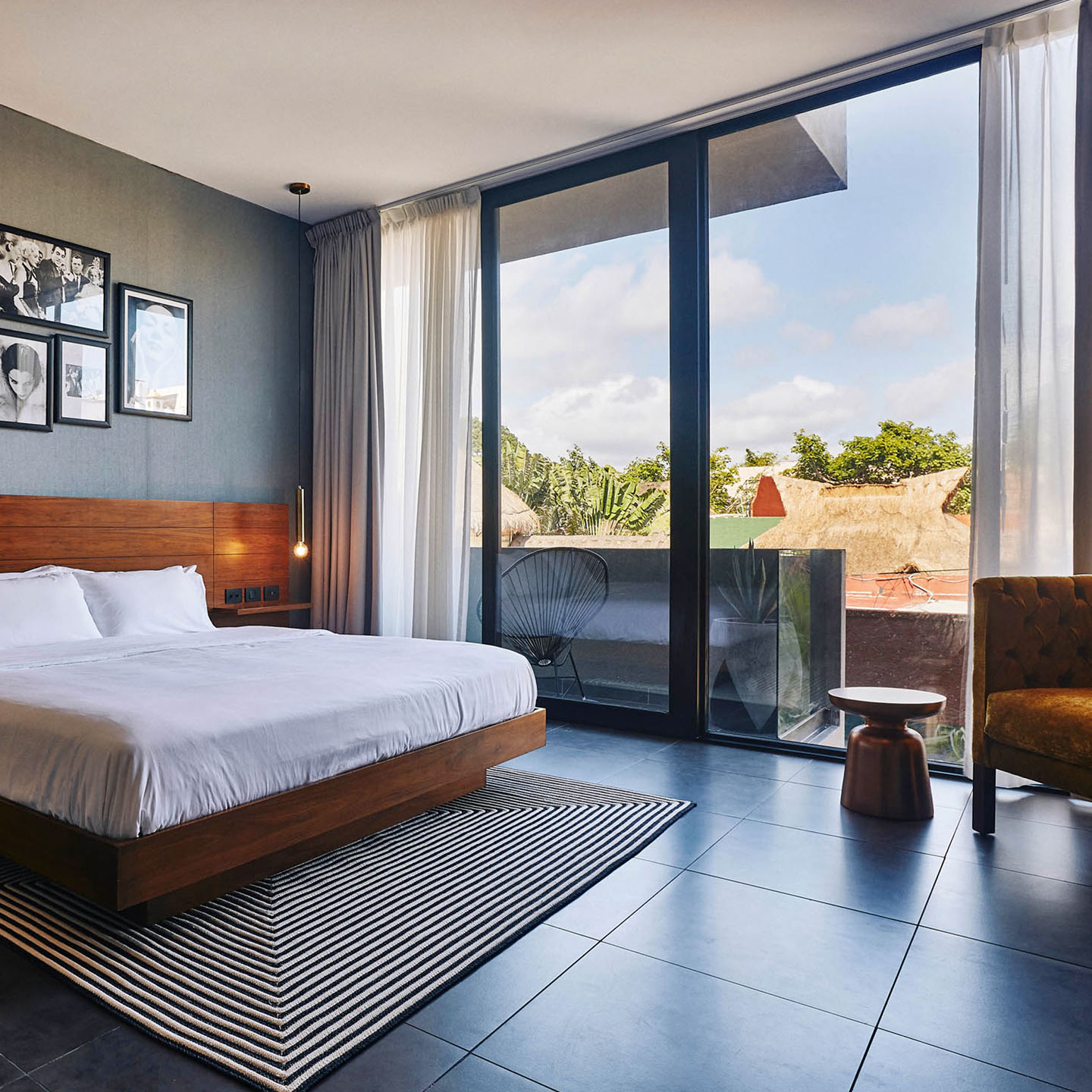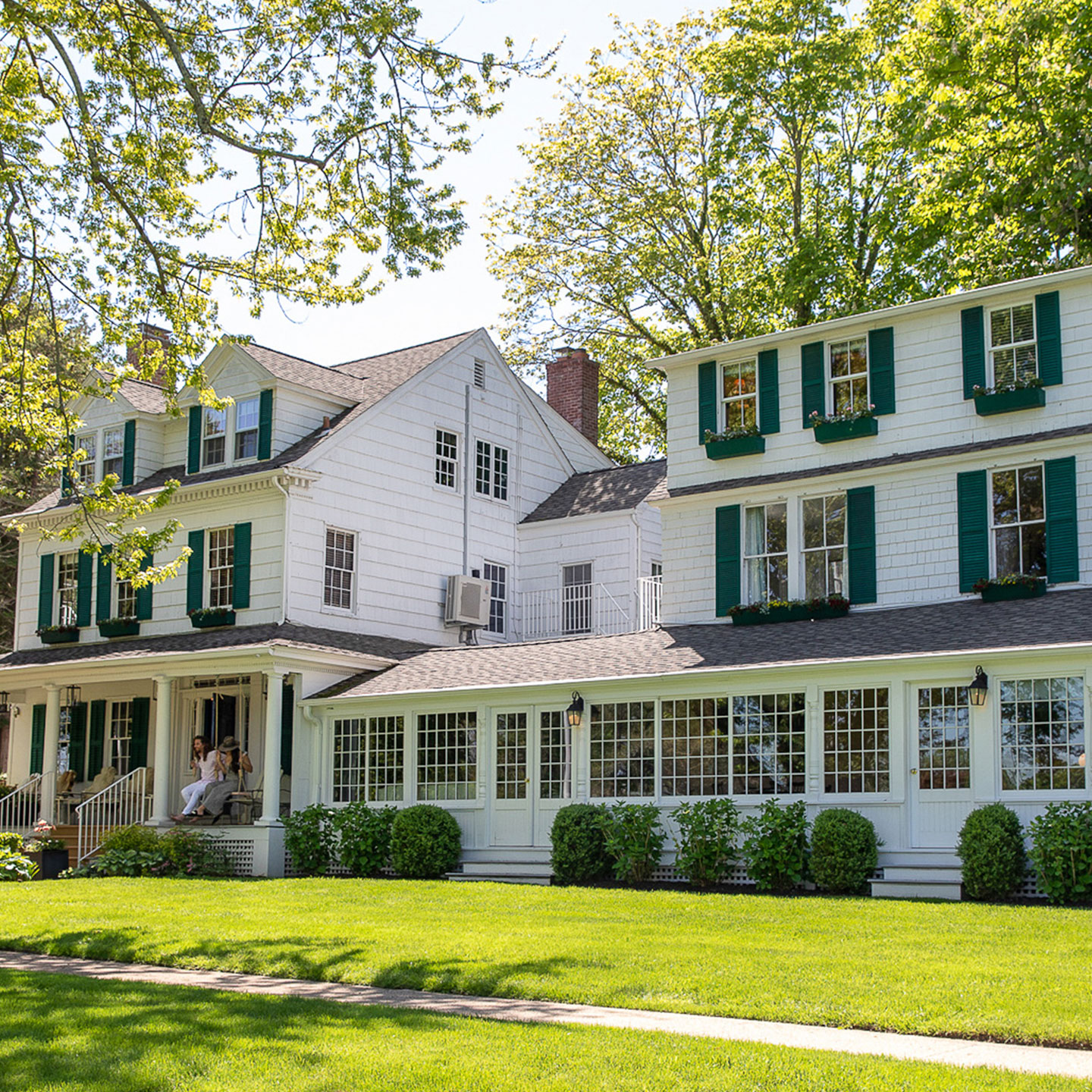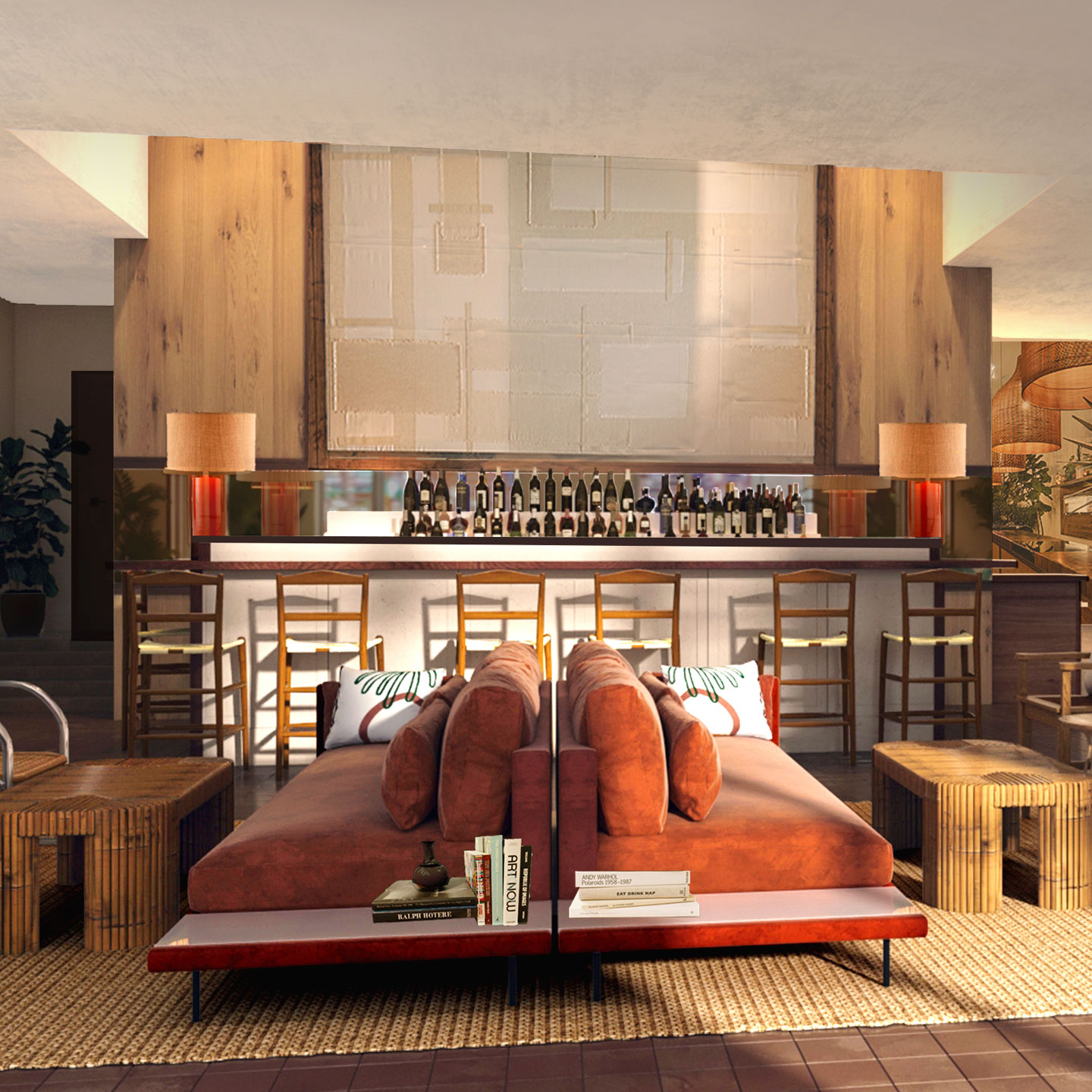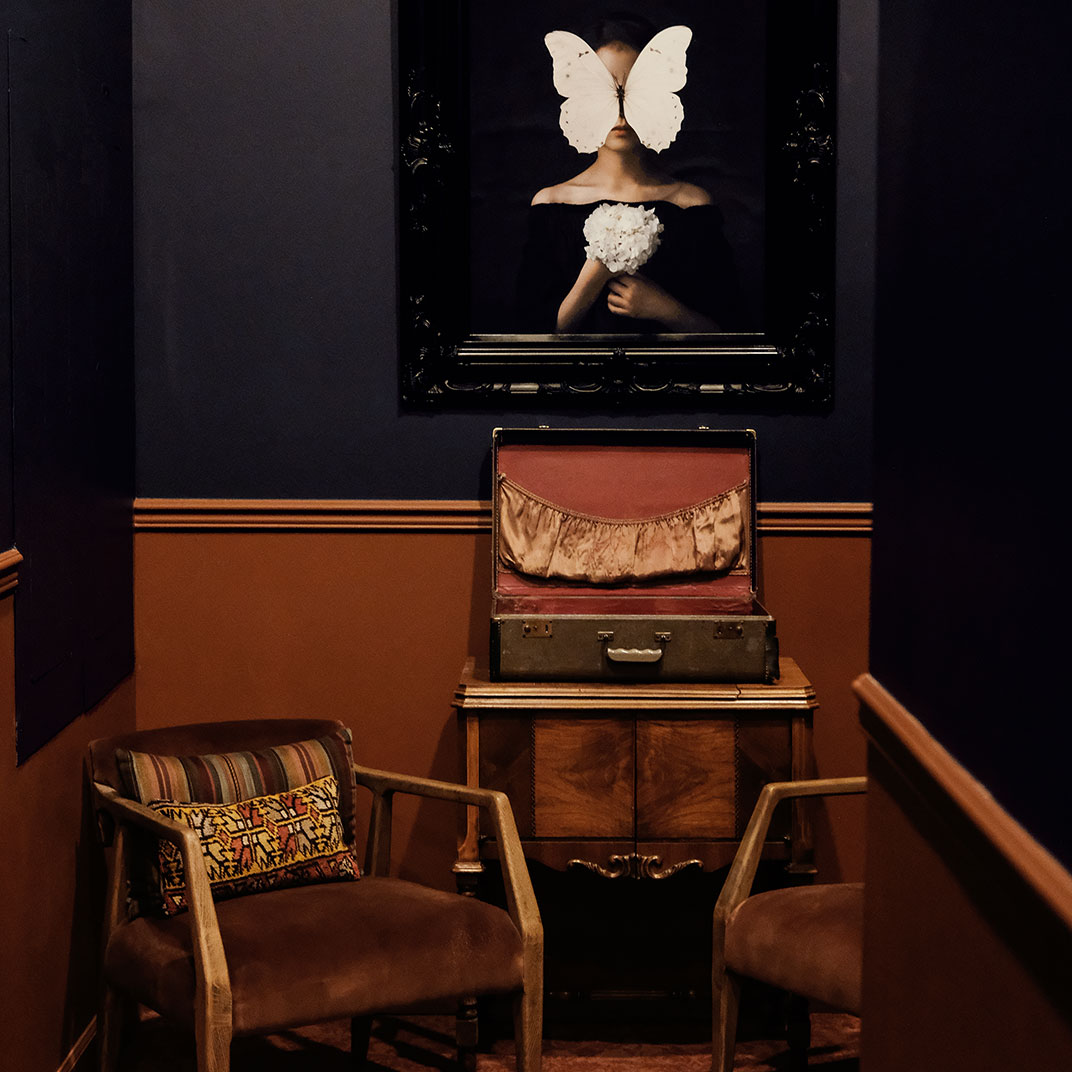
Life House isn’t a typical hotel group. They own and operate hotels — that part is typical. But behind the scenes, they’re disrupters. They looked at how the hotel industry has traditionally been run and they decided they were going to change it. Carry it kicking and screaming into the 21st century. It’s a big task, but the millions they’ve earned in funding from Silicon Valley shows that more than a few people believe they’ll succeed.
And if they do succeed, you might never even notice. We’re not talking about installing flashy room amenities or updating the spa menu or trying to revolutionize breakfast. We’re talking about changing the things you don’t see. The things in the back of the house that have made running a hotel a headache for owners and expensive for guests.
“There are over 20 systems a hotel needs to successfully operate, from a booking engine, to a finance product, to door locks. These systems need to talk to each other so that when a guest books a room it flows through [all of them]. The resulting software ecosystem is chaos.” That’s Rami Zeidan, founder of Life House. He’s the kind of person who believes Microsoft Excel modeling is an art form. And he’s the kind of person ideally suited to calm the chaos he’s describing.
The company Zeidan founded doesn’t just create inspired hotels (in Miami, Denver, and Nantucket) — it gives others agency to do the same. It encourages them to take the plunge. Opening a hotel will never be easy. Thanks to Life House, it’s a little easier.
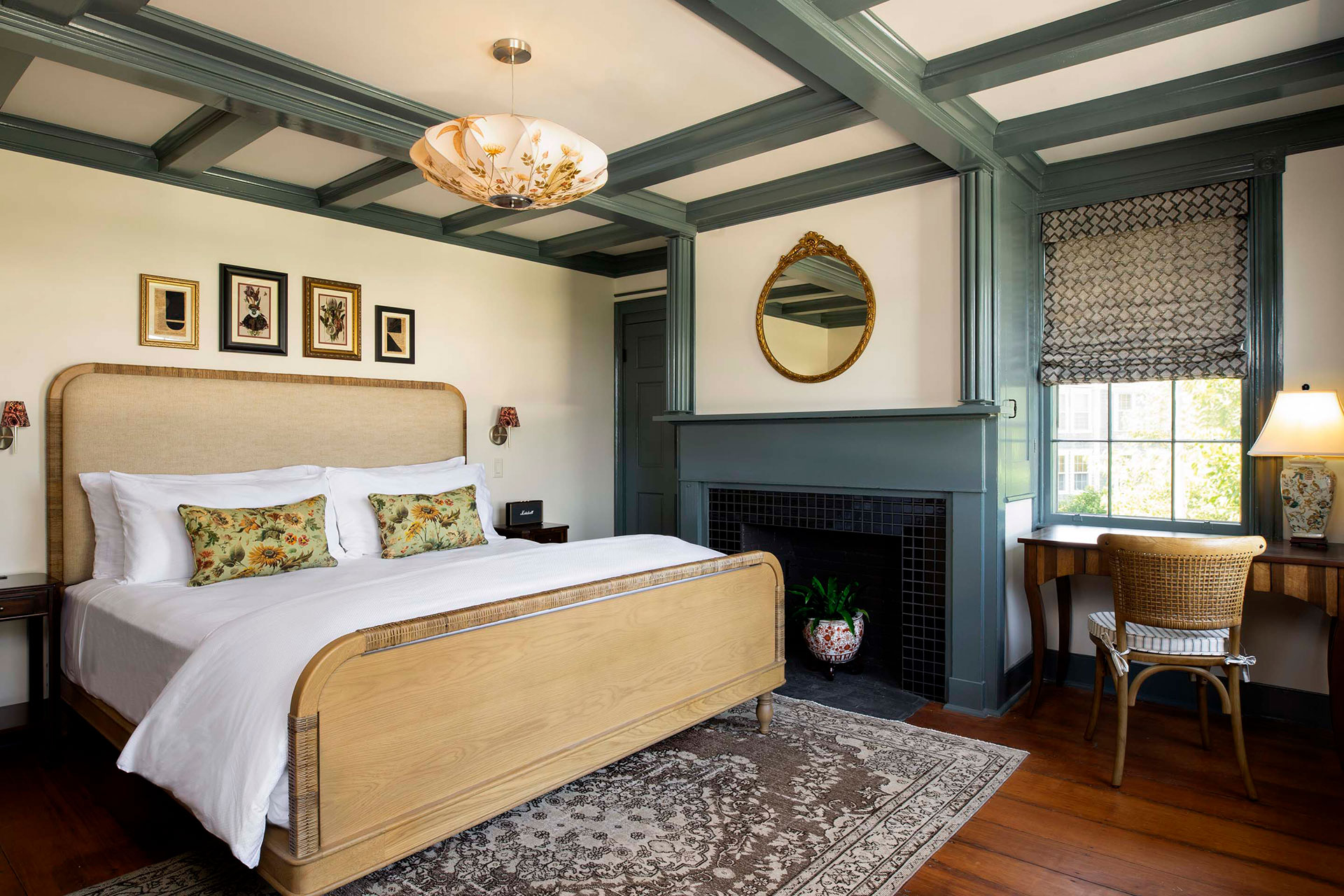
Zeidan developed groundbreaking management software that lets hotel owners run their systems more efficiently — helping to automate, centralize, and optimize everything about the business. The Life House properties utilize the software, of course, but they also sell it to a wide variety of independent hotels that share their boutique sensibilities. “You can think of us as the Shopify for independent hotels,” Zeidan tells Tablet in a fascinating email exchange. “Where independent hoteliers can focus on what they care about, i.e., the real estate and the brand, and not worry about the complicated nuances of finance, pricing, human resources” and on and on.
The fact that the software was developed by a boutique-hotel operator and not by a multinational conglomerate is perhaps its most extraordinary aspect. Zeidan knows what these smaller hotels need and he knows how best to serve it to them. He began his hospitality career as an investor in Morgans Hotel Group, then the NoMad in Manhattan. Before long he had worked on a who’s who of Tablet hotels. The 1 Hotels. Baccarat. Sydell. At Life House he has his own in-house tech team — an absolute rarity in the industry.
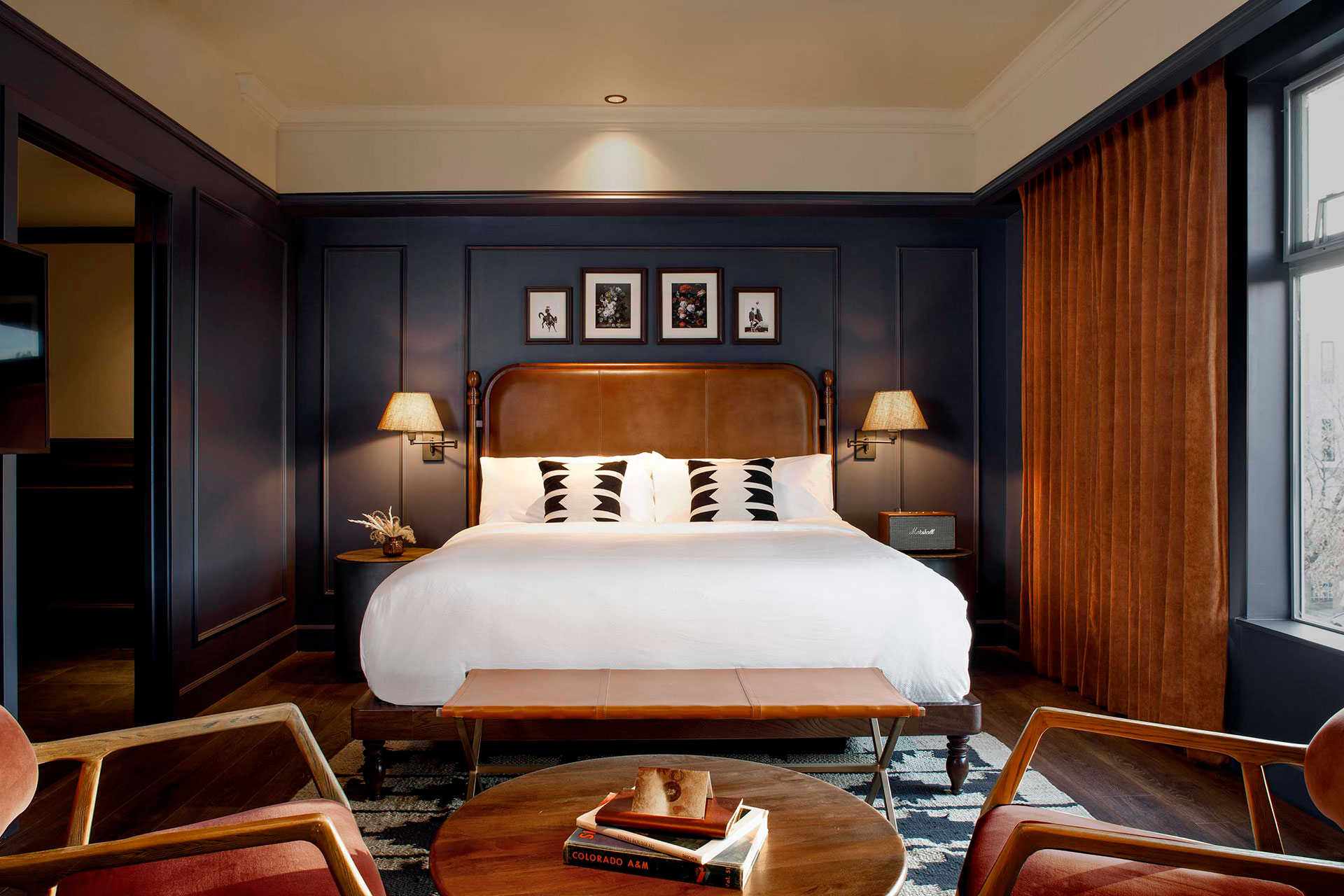
Boutique hotel founders are a type. It’s like opening a restaurant. Everyone dreams about it, but you have to be a little bit eccentric to actually make it happen. You need a vision so strong you feel like you have no other choice but to go for it. Look at Thorngrove Manor in Australia. The founders built a fairytale palace from scratch because they had something in their head they had to put into the world. It’s like that for a lot of them. But Zeidan didn’t just set out to create one dream hotel. He has a mission, and in his words, it’s to “serve the universe.”
His mission stems from a tragedy. “In 2014, my brother — who was a doctor, humanitarian and my best friend — passed away in a tragic accident. I remember feeling that even a billion dollars would not even impact my mood let alone make me feel better.” He traveled for two months. “My brother had regularly gone to Lebanon and stayed deeply connected to family and so I immediately went there to connect with all of my relatives and try to connect to my roots.” The experience was formative and igniting. “Despite being grief stricken and barely being able to speak any Arabic or French, I felt at home and for the first time I actually felt proud of my name, Rami.” As he reflected, he came to an understanding of the world, and the role travel plays in it. His goal, he decided, was to make “the social good of intentional travel more accessible.”
Life House’s fundamental focus on technology had its advantages during the pandemic. They were able to quickly implement the type of QR-based life we’ve all grown accustomed to, and even partner with a home workout company to film a series of exercises in actual guest rooms before reopening each hotel — so guests could follow an exercise routine perfectly suited to the space. Meanwhile, a feature that predates the last couple years is the Life House social network — it’s voluntary to opt in — that lets you find other people staying or arriving at the hotel who are interested in meeting up.
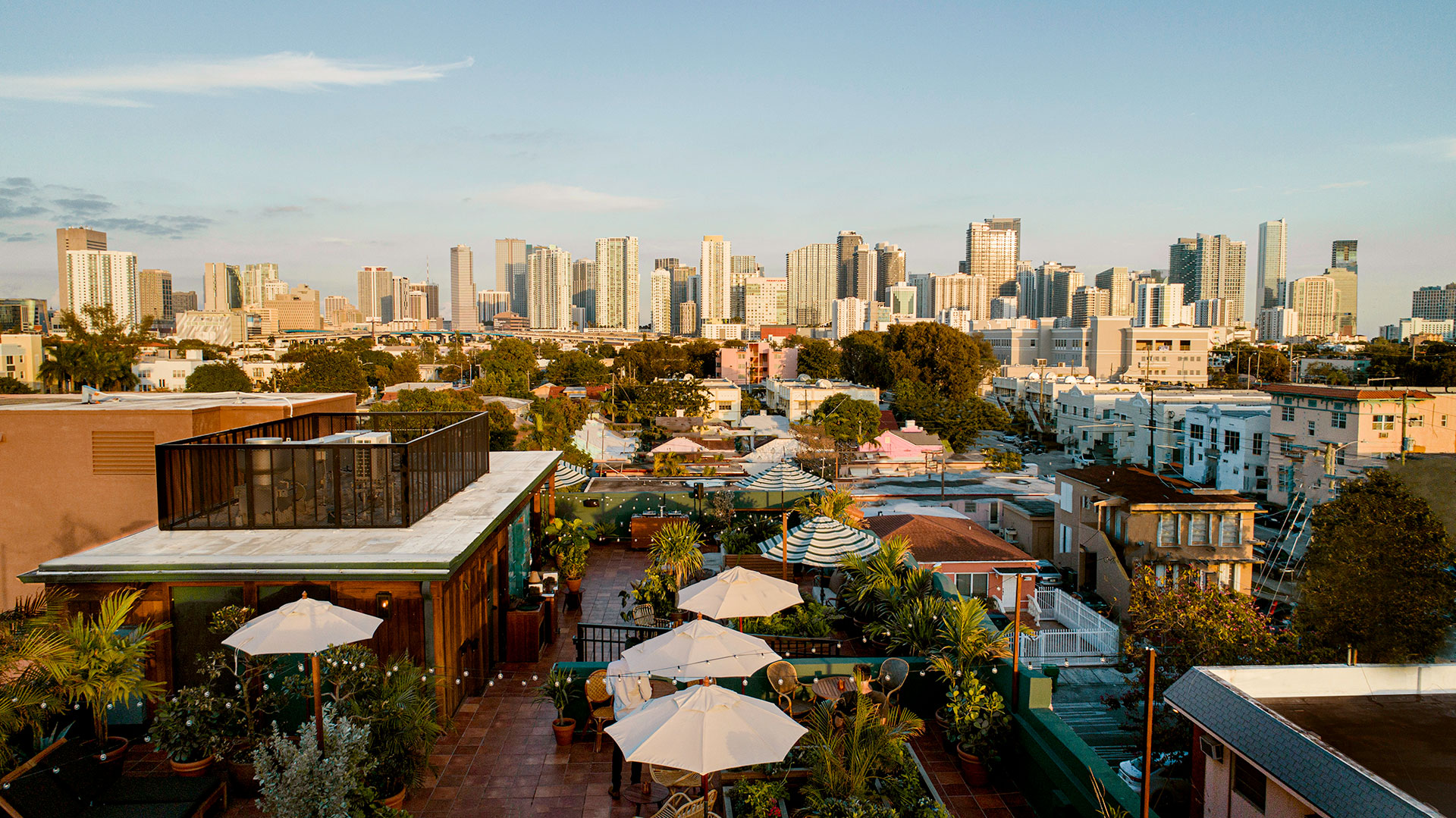
Each hotel with the Life House name goes through an intensely researched brand-birthing process. “We feel we’re more like screenwriters in this phase than designers,” explains Zeidan. They learn everything they can about the specific neighborhood, then develop a “protagonist” to guide them through the specific design choices. “It’s like method acting to really sit in this protagonist’s shoes and say ‘if I were him/her, what am I passionate about, what story needs to be told, and how do I tell it through design, tone of voice, music, etc.’” Take Life House, Little Havana for example. Their research illuminated the idea that the neighborhood was a refuge not just for Cuban immigrants, but a “multitude of Latin cultures… who could land in a safe, inexpensive community where they didn’t need to learn a new language.”
“We then took this conceptual narrative and bled it through everything — from layering in Afrocubanismo textiles and artwork to creating a restaurant and bar with an amazing collection of Latin American street foods.” Their imagined protagonist would get to know these foods in his travels: “a very Anthony Bourdain approach.”
Below, you can see the hotels in the Life House universe. The ones without Life House in the name exist in the “Powered by Life House” portfolio. They use the Life House management software and lean on the operations expertise of the Life House team, but they’re pre-existing, independently owned hotels with their own stories and boutique sensibilities. As the hotel industry went through its ups and downs over the last two years, and continues to do so, Life House has focused a larger part of their resources on these types of properties. In 2018, Zeidan wanted over twenty Life House hotels in development by the next year, saying “our loyal guests will want a Life House wherever they travel.” If the pandemic has altered their ambitions, they haven’t eliminated them.
Zeidan puts it this way: “We find we can have a bigger impact by selling our software and services to other hotels with great stories versus only being focused on our brand.” Not that the Life House brand, proper, doesn’t still plan to expand. They’re in various stages of development for more hotels in Chattanooga, Miami Beach, Nantucket, Brooklyn, the Berkshires, and even Bali. So will Life House succeed in disrupting the industry and its decades of entrenched, antiquated systems? It remains to be seen, but it sure will be fun to watch.
Life House, Nantucket
Nantucket, Massachusetts
This old sea captain’s house is the oldest continually operating hotel in Nantucket. It became an inn in the 1830s, and while it’s been thoroughly redesigned by Life House — and functionally been brought up to 21st-century luxury-boutique standards — it’s full of details that suggest a long and eclectic history. A fine breakfast is the only meal served, unless you count afternoon tea in the gardens, but from this location you’re meant to get out and explore the town, which has no shortage of excellent restaurants among its many charms.
Life House, Lower Highlands
Denver, Colorado
Denver, Colorado’s Highlands district is one of the most vibrant and fast-changing corners of town; art galleries, breweries, restaurants, bars, and now hotels balance the change that necessarily accompanies innovation with the need to hold on to local history. Life House, Lower Highlands is devoted to both efforts. It’s a new build, and an attractive one, a modestly sized contemporary building in a neighborhood that’s part commercial, part residential. Inside, however, modernity gives way to Victoriana, in a tribute to the era of LoHi’s founding.
Life House, Little Havana
Miami, Florida
Out-of-town guests could be forgiven for believing that Miami Beach and Miami are one and the same. But if you never set foot on the mainland, you’ll miss out on Little Havana, one of Miami’s most unique neighborhoods. And that means missing out on Life House Little Havana, the first hotel from this hospitality startup that aims to deliver a luxury-boutique experience at a price that its competitors can’t match.
Life House, Little Havana reopens on November 9th
Life House, South of Fifth
Miami, Florida
South Beach might seem an odd choice of venue for a Silicon Valley hospitality startup, but it turns out that this is a hotel market that’s ripe for “disruption.” This town has plenty of awesome hotels, but they tend to come with similarly fearsome price tags. Not the case with Life House, South of Fifth — the Life House proposition is a luxury boutique hotel at a price starting just a shade over a hundred dollars.
Life House, South of Fifth is currently closed but plans to reopen in the coming months
Faraway Nantucket
Nantucket, Massachusetts
Given the small size of Nantucket’s downtown historic district, to have just one house there would be a stroke of good luck. To have four — especially four in a cluster all together — is extraordinary. Faraway Nantucket finds itself in exactly this situation: four houses, as old as 1846 and as new as 2013, around a courtyard lounge, converted into a 58-room boutique inn.
Kelley House
Martha’s Vineyard, Massachusetts
Edgartown, Massachusetts, on the island of Martha’s Vineyard, is among the most historic places in the United States. Once home to the American whaling industry, it’s now one of the leisure capitals of the Northeast, and many old sea captains’ stately homes have been transformed into guest houses and hotels. The Kelley House, despite its singular name, comprises six of them; and while, with nearly two centuries in business, it’s one of the oldest hotels in the country, its owners have kept it looking and feeling contemporary, even as they’ve preserved the atmosphere that makes it so unique.
Marquee Playa Hotel
Playa del Carmen, Mexico
Travelers to Playa del Carmen have plenty of choices already, but something new, luxe, and stylish is always welcome. Marquee Playa Hotel offers its own perspective on the Riviera Maya scene, drawing inspiration from, of all things, the golden age of Hollywood glamour — monochrome portraits and film stills adorn the walls, and while the interior-design style is mostly minimalist, you just might catch a glimpse of Art Deco here and there.
The Maidstone
East Hampton, New York
If your idea of Scandinavian design is still something out of IKEA, you’re a few decades out of date. Same goes for anyone who imagines the Hamptons are all about country-club preppiness. The Maidstone, in East Hampton, will set you straight on both counts. The Maidstone is a little slice of the Stockholm archipelago, within driving distance of New York — complete with a generous helping of eclectic, contemporary Scandinavian design, as well as a restaurant whose Scandinavian-influenced cuisine just happens to be perfectly on trend at this moment in the food world.
KAYAK Miami Beach
Miami, Florida
For a little while there, Miami Beach’s hotels were in danger of losing touch with what’s unique about the city: not just the undeniable glamour of the place, but the backdrop of unhurried, quasi-tropical ease against which it’s set. KAYAK Miami Beach, however, is a timely reminder that it’s not just perfectly possible to combine stylish elegance and cheerful relaxation under one roof — it’s actually the essence of Miami Beach hospitality.
Wheatleigh
Berkshires, Massachusetts
It hardly seems like Wheatleigh can be real — a 19th-century Italianate mansion in the Berkshires of Western Massachusetts, set on a 22-acre estate surrounded by parkland designed by Frederick Law Olmsted, complete with a small but high-end French restaurant and a mere 19 rooms and suites. It’s ideal for some rural seclusion, if that’s what you’re after, but this corner of the Northeast is full of culture as well; the town of Lenox is steeped in literary history, and you’re just a few minutes’ walk from the Tanglewood estate, the summertime home of the Boston Symphony Orchestra.


